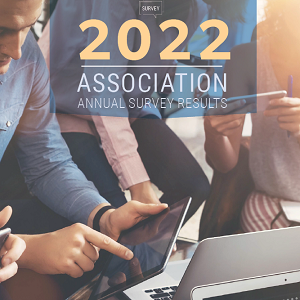
Current Trends in Credentialing Organizations’ Use of Criminal Background Checks
There is a growing interest in how credentialing organizations use criminal history data to evaluate candidates for certification. This raises issues of credentialing standards, liability considerations, state and local regulation, and philosophical approaches to certification eligibility. GKG Law reviewed applications (and where available, candidate handbooks) for 50 U.S. credentialing and certification bodies. This was an internal survey and, while useful, our data should not be considered a scientific predictor.
In addition, we reviewed some recent legislative and regulatory trends surrounding the use of criminal history data. While we broadly examined the “Fair Chance Act” and “Ban-the-Box” reforms, organizations should check relevant state and local rules.
Our Findings
Of the 50 organizations we reviewed:
- 36% had an explicit criminal history component to the certification process.
- 14% required an active, unrestricted license or some proof of a license in good standing, which indirectly implicates criminal history issues at the state licensing level.
- 50% did not address criminal history or having a state license in good standing.
- In health services or therapy related fields, 66% of credentialing organizations included a criminal history component in the certification process or required an active unrestricted license to practice (46% addressed criminal history and 20% addressed an active license).
- Where the certification was for state-licensed health practitioners, virtually every organization asked about an active unrestricted license rather than criminal history.
- 87% of non-health services or therapy-related certifications included no criminal history questions.
- Where a criminal history check was present, 22% had a strict policy on disqualifying offenses related to the field, 6% had a broad policy of disqualification for prior offenses, and 72% had an open-ended question for case-by-case evaluation (g., “Have you ever been convicted of a crime? Please explain”).
Criminal history was mostly addressed in health or therapy related fields. The only non-health fields that required a check involved working with vulnerable persons or loved ones. These fields often involve interactions with children, the elderly, or the ill. Consumers depend on these professionals to help them address sensitive health and wellness issues. With few exceptions, criminal history policies appeared to be tailored to address issues directly related to the field or involved a case-by-case basis evaluation.
Legislative and Regulatory Trends
Recently, the “Fair Chance Act” reform and “Ban-the-Box” legislation have targeted the use of criminal history questions in job applications. These reforms seek to move consideration of criminal history from the initial application stage to the interview process to mitigate discriminatory harm to ex-convicts by employers that reject initial applications reporting criminal history.
These reforms began by targeting public sector employers. They expanded to include the private sector. There is a growing trend to expand these policies to include public sector licensing authorities (i.e., “Fair Chance Licensing Reform”). At present, 15 jurisdictions have incorporated some form of Fair Chance Licensing Reform: Arizona, Illinois, Georgia, Kentucky, Louisiana, Delaware, Indiana, Massachusetts, Tennessee, Maryland, Missouri, Colorado, Connecticut, Minnesota, New Mexico, and New York City.
These licensing reforms still allow state licensing authorities to disqualify candidates that have recent and/or serious criminal histories directly related to the occupational field. The reforms tailor consideration of criminal history to relevant offenses and move it to later in the process.
It is possible that the focus on public sector licensing authorities may expand to include private sector credentialing bodies. It is unclear how such reforms would apply to credentialing processes, which often do not include a second stage of interviews after the initial application.
Risk Assessment Considerations
Credentialing bodies must balance liability concerns regarding harm to applicants and harm to consumers. Where the credential involves interactions with vulnerable people or issues such as physical or mental well-being, consumer reliance on the credentials presents a greater risk to credentialing bodies. Conversely, applicants may feel discriminated against if they are disqualified for convictions that occurred long ago or bear no relation to the occupational field. Risk assessments will have to be compared to organizational philosophical approaches. This may be a good time to consider your approach and, perhaps, tailor your policies appropriately.
By Richard Bar and Oliver Krischik, GKG Law, P.C.
Want to learn more? Don’t forget to download GKG’s Free Report, Certification & Credentialing 411. This popular report is back for 2019 and has been updated with more informative topics every education focused association executive needs to know.
Are your credentialing exams secure? Could your Professional Disciplinary Committee’s clear procedures and policies still leave you susceptible to challenges? Do you know how the performance of background checks on certification applicants has now been affected by GDPR? Click here to download this FREE report!


